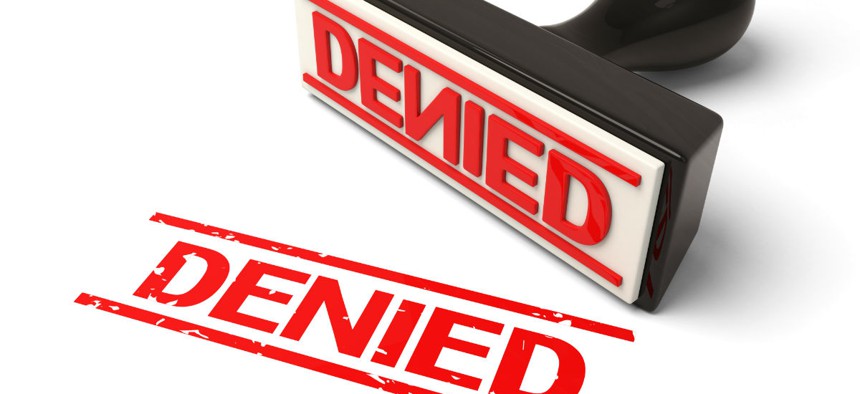The Top 10 Reasons People Are Denied a Security Clearance
Know what issues could cause problems in your own background investigation before you apply.
In 2016, the Defense Office of Hearing and Appeals held 1,142 security clearance appeals hearings. They made decisions on security clearance eligibility, placement into public trust positions and Common Access Card denials. If you are denied a security clearance or your security clearance is revoked due to adverse information that has been discovered or self-reported, you have the right to appeal the decision before DOHA. A study of the cases and their outcomes offers a good chance to see the trends in security clearance denials, and what issues are likely to cause issues in your own background investigation.
Among the things you discover if you study DOHA cases for very long: Many cases look very similar and the primary issues remain the same from year to year. Here’s an overview of the top 10 issues that appeared before the board in 2016:
Adjudicative Guideline (2015/2016)
Guideline F: Financial Considerations (499/864)
Guideline E: Personal Conduct (225/257)
Guideline H: Drug Involvement (122/102)
Guideline B: Foreign Influence (87/78)
Guideline J: Criminal Conduct (70/61)
Guideline G: Alcohol Consumption (59/47)
Guideline C: Foreign Preference (41/45)
Guideline K: Handling Protected Information (8/16)
Guideline M: Use of IT Systems (4/8)
Guideline D: Sexual Behavior (8/7)
Financial issues are time and again the top reason for a security clearance denial. The issue is often not simply that an applicant has debt, but that the applicant has taken no steps to remedy a pattern of overspending. The cause of debt is a consideration, and for good reason—financial motivations are often the prompt behind espionage, and create an opportunity for blackmail.
Personal conduct is also often at the top of the list, because that category encompasses any number of issues that arise over the course of an investigation, including falsifying information on the SF-86 (omitting negative information). Employment issues from falsifying timecards to a pattern of rule violation also fall under the personal conduct adjudicative criteria.
There are three adjudicative criteria not included on the Top 10 list. Of those, Guideline I, psychological conditions, resulted in just five cases before the board. Guideline A, allegiance to the United States, and Guideline L, outside activities, resulted in no cases before the board in either 2015 or 2016. (Outside activities is a somewhat confusing adjudicative criteria that generally refers to financial relationships with a foreign country. If that was an issue, it would probably be addressed in Guideline B: foreign influence, or Guideline C: foreign preference.
Individuals with issues from debt to foreign relatives shouldn’t despair, however. Mitigating an issue is always possible, particularly with the passage of time. The most important thing is to be completely up front about any issues from day one, and to be organized and detailed in your response to a security clearance denial. Previous DOHA cases are also published and can be a good resource to see how the board handled similar cases in the past.
Lindy Kyzer is the editor of ClearanceJobs.com and a former Defense Department employee.







